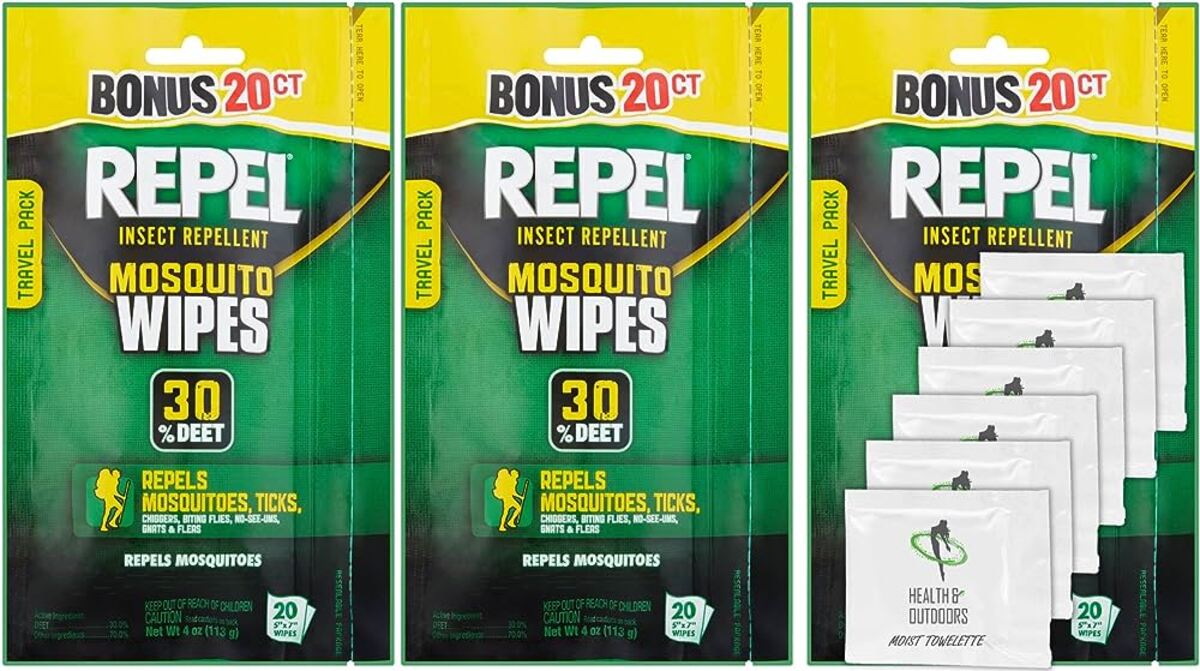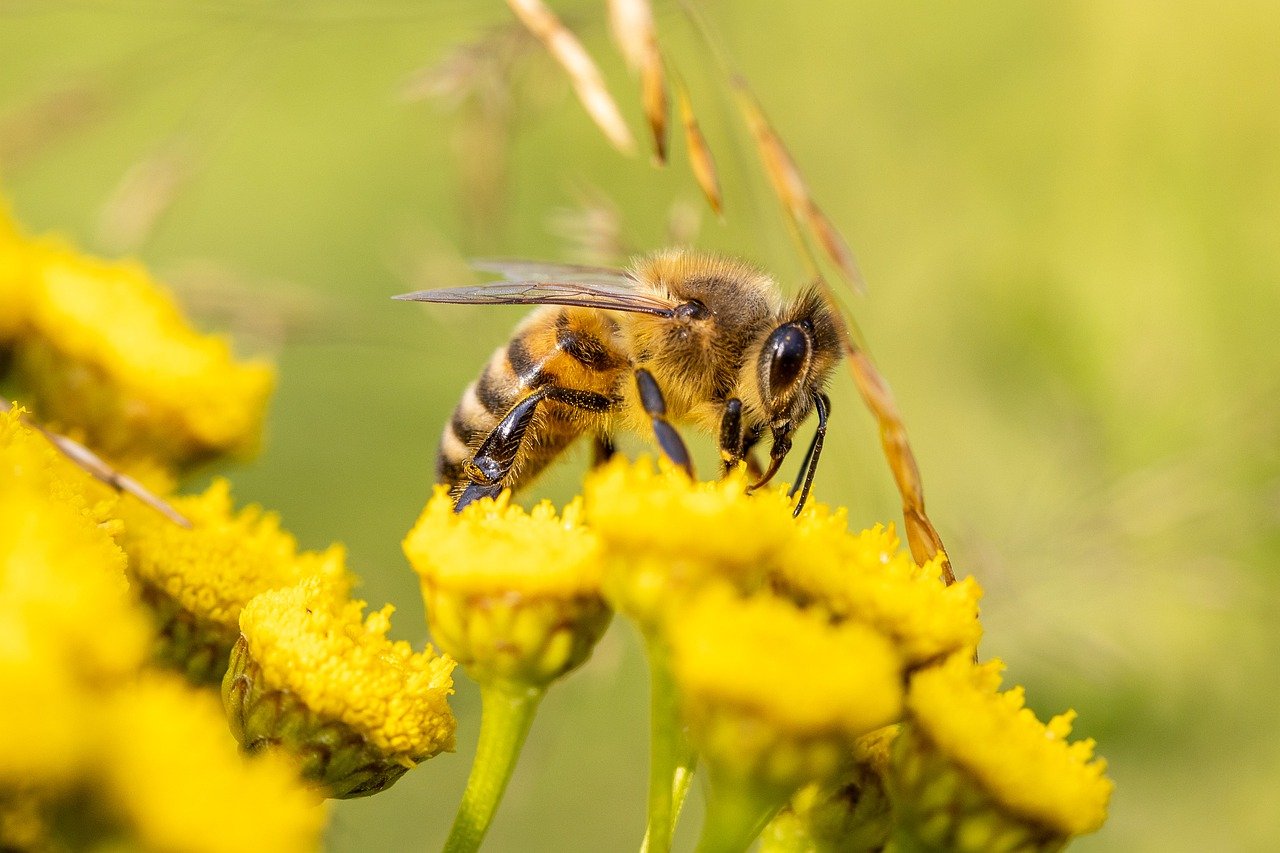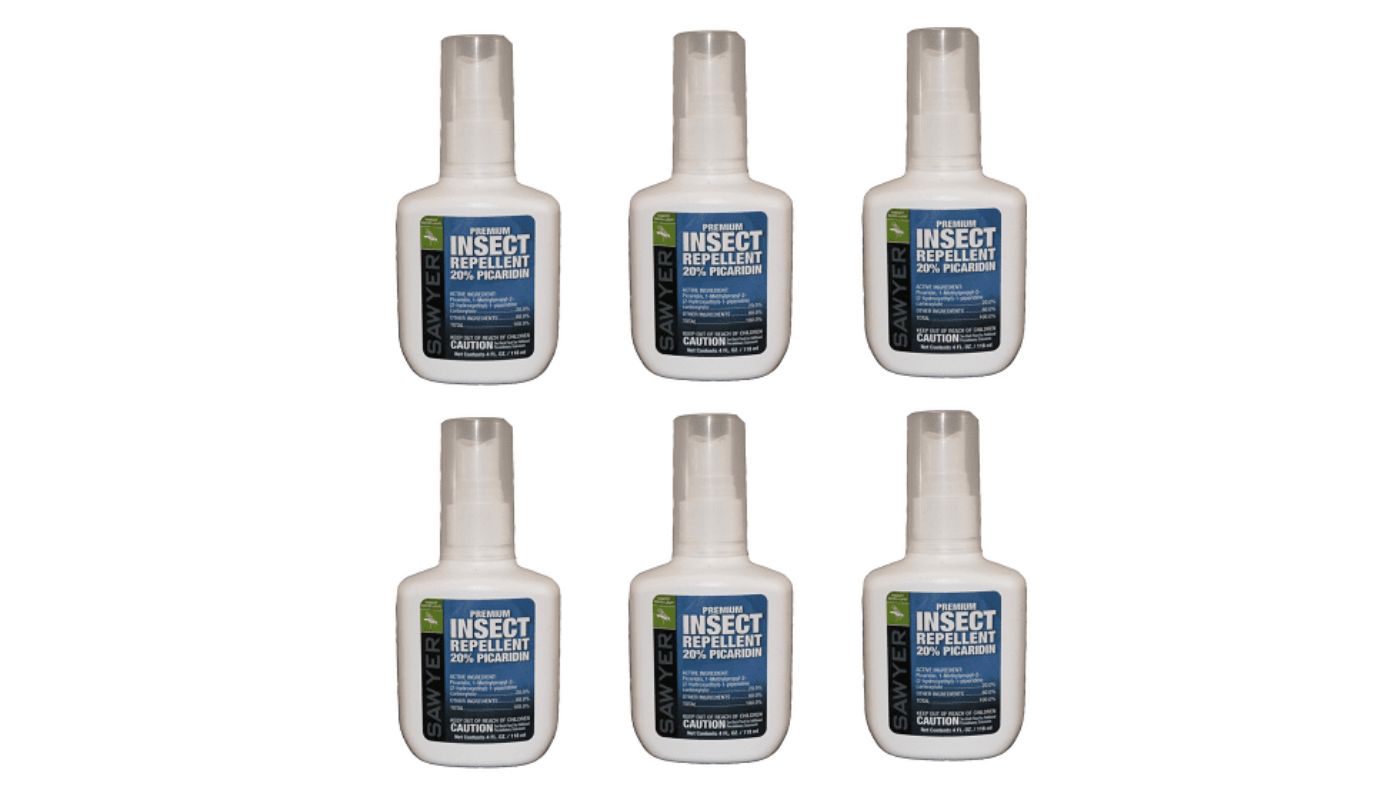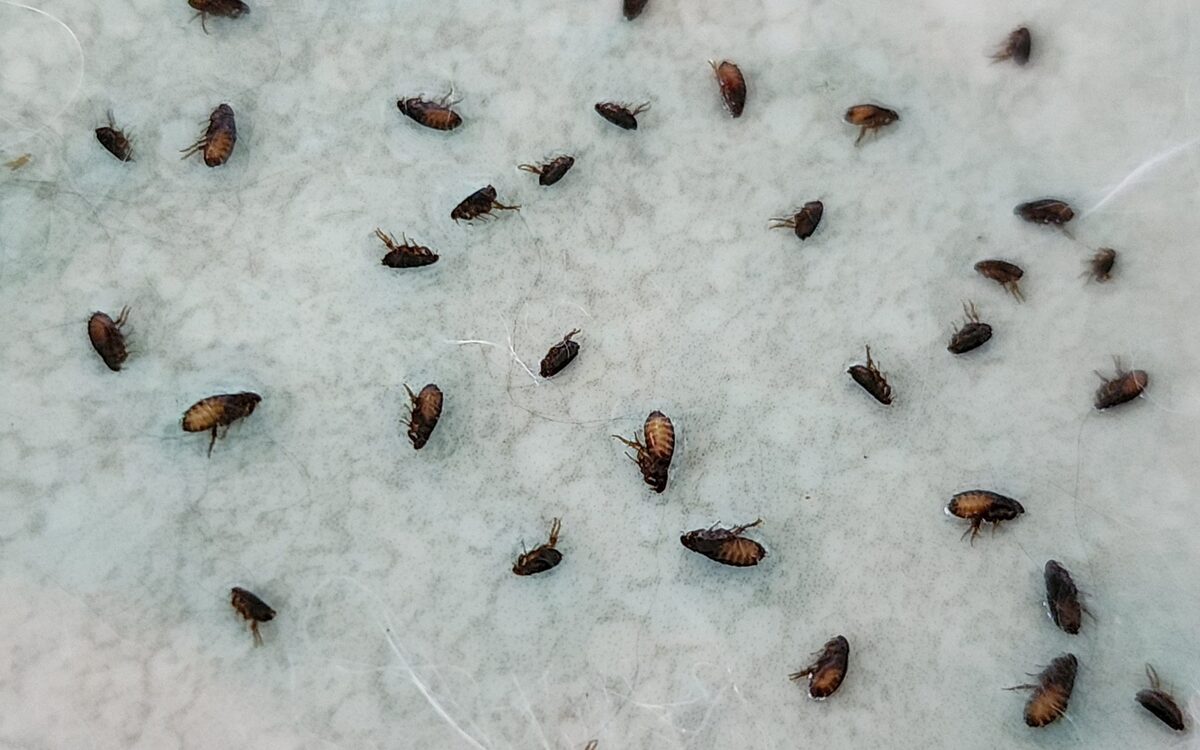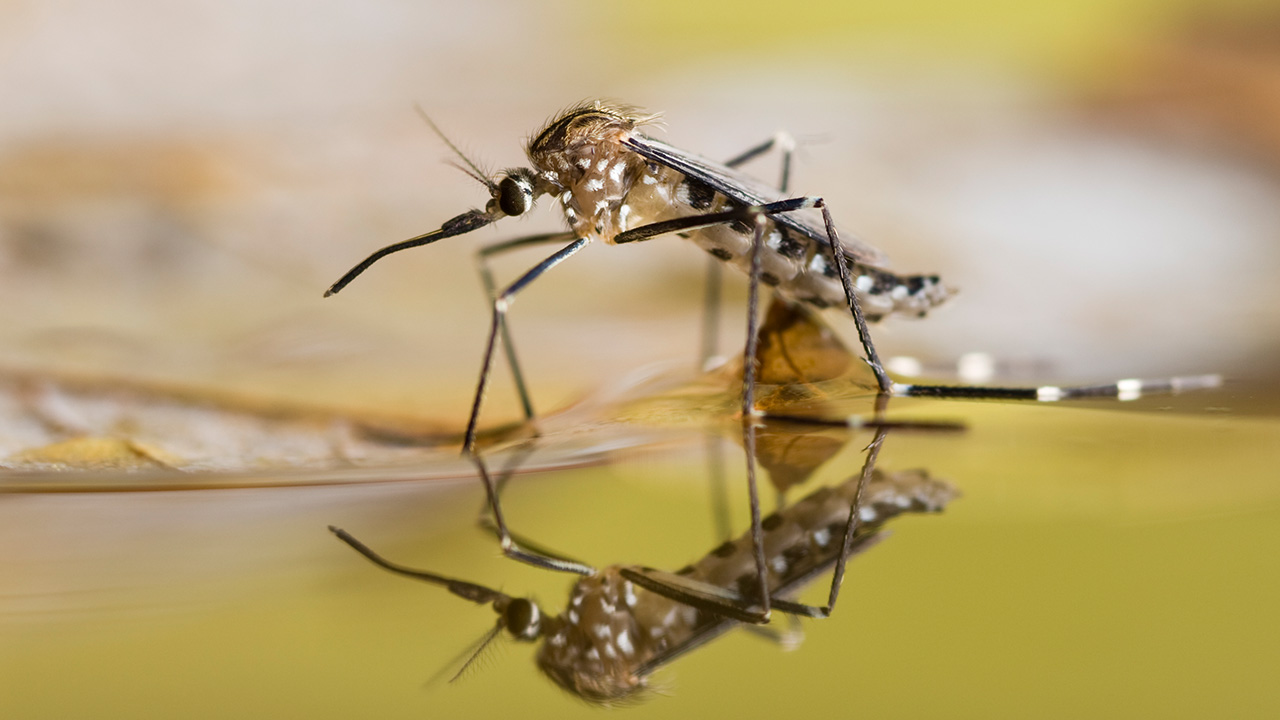Home>Gardening News and Trends>Latest News>Why Lemongrass Repels Insects


Latest News
Why Lemongrass Repels Insects
Modified: January 22, 2024
Discover the Latest News on Why Lemongrass Repels Insects and its Powerful Benefits for Natural Pest Control.
(Many of the links in this article redirect to a specific reviewed product. Your purchase of these products through affiliate links helps to generate commission for Chicagolandgardening.com, at no extra cost. Learn more)
Table of Contents
Introduction
When it comes to enjoying the great outdoors, insects can sometimes be an unwelcome companion. Mosquitoes, flies, and other pesky bugs can ruin a peaceful day outside and leave us with itchy bites. While there are chemical insect repellents available on the market, many people are searching for natural alternatives that can keep insects at bay without exposing themselves to potentially harmful substances.
Lemongrass is one such natural solution that has gained popularity for its insect-repelling properties. Not only does it have a refreshing citrus aroma that humans find pleasant, but it is also known to be highly effective in repelling insects. In this article, we will explore the science behind lemongrass as an insect repellent and discuss its benefits and usage.
Lemongrass, scientifically known as Cymbopogon, is a tropical plant that belongs to the grass family. Native to regions such as Southeast Asia, lemongrass has been used for centuries in traditional medicine and culinary applications. Its distinctive lemony scent and flavor make it a popular ingredient in teas, soups, and various Asian dishes. However, its usefulness goes beyond the kitchen.
What sets lemongrass apart from other plants is its high content of citronella oil, a natural compound known for its insect-repelling properties. Citronella oil is commonly used in commercial insect repellent products, but lemongrass provides a more sustainable and eco-friendly alternative to synthetic formulas.
The scent of lemongrass acts as a natural deterrent to insects. Mosquitoes and other bugs are repelled by the strong citrus smell, which masks the attractant scents they usually seek out. This makes lemongrass an excellent choice for those who want to enjoy outdoor activities without the constant bother of buzzing and biting insects.
The efficacy of lemongrass as an insect repellent has been validated by scientific studies. Research has shown that the essential oil extracted from lemongrass can provide protection against a wide range of insects, including mosquitoes, flies, gnats, and ants. In fact, a study published in the Journal of Vector Ecology found that lemongrass oil provided 100% protection against mosquito bites for up to two hours.
Using lemongrass as an insect repellent offers several benefits. First and foremost, it is a natural and chemical-free alternative to commercial bug sprays. This makes it suitable for those with sensitive skin or allergies, as well as for children and pets. Additionally, lemongrass is readily available and affordable, making it accessible to anyone who wants to try it.
In addition to repelling insects, lemongrass also boasts antimicrobial and anti-inflammatory properties. These properties make it a versatile herb that can be used to soothe insect bites, relieve skin irritation, and promote overall skin health. Furthermore, lemongrass has a calming effect on the mind and body, making it an excellent addition to relaxation routines or aromatherapy practices.
In the following sections, we will discuss the scientific studies that support lemongrass as an insect repellent, as well as the various ways in which it can be used. Whether you are planning a camping trip, a picnic in the park, or simply want to enjoy a pest-free home, lemongrass may just be the natural solution you’ve been looking for.
What is Lemongrass?
Lemongrass, known by its scientific name Cymbopogon, is a type of tropical grass that is native to regions like Southeast Asia, Africa, and Australia. It is widely recognized for its distinct lemony aroma and taste, which have earned it a prominent place in various cuisines and traditional medicine systems.
This grassy plant grows in tall clumps with long, slender leaves and can reach a height of up to six feet. Lemongrass leaves are characterized by their vibrant green color and sharp edges. The plant produces stalks that are fibrous and a pale yellowish-green color.
Over the years, lemongrass has been used for a wide range of purposes, thanks to its impressive array of health benefits. In traditional medicine, it has been utilized for its antimicrobial, anti-inflammatory, and analgesic properties. The essential oil extracted from lemongrass contains high concentrations of various bioactive compounds that contribute to its therapeutic value.
Beyond its medicinal applications, lemongrass has also found its place in the culinary world. Its strong, citrusy flavor adds a refreshing twist to dishes and beverages. It is often used in Asian cuisine, particularly in Thai, Vietnamese, and Indonesian dishes, where it is combined with other aromatic herbs and spices to create complex flavors.
Lemongrass is also valued for its fragrance and is often used in perfumes, soaps, and other cosmetic products. Its invigorating scent can uplift the mood and create a sense of freshness, making it a popular choice in aromatherapy.
One of the key components of lemongrass is citral, a compound responsible for its distinct aroma. Citral has been shown to possess antifungal, antibacterial, and insecticidal properties, which make lemongrass an excellent natural solution for repelling insects.
Overall, lemongrass is a versatile plant that offers a myriad of benefits. From its medicinal properties to its culinary uses and insect-repellent capabilities, it has become a sought-after ingredient in various industries. Whether you are looking to add depth to your dishes, improve your well-being, or keep pesky insects at bay, lemongrass is a valuable natural resource that can meet your needs.
How Lemongrass Repels Insects
The ability of lemongrass to repel insects lies in its potent fragrance. The strong citrus scent emitted by lemongrass acts as a natural deterrent for various pests, including mosquitoes, flies, and gnats.
When insects are searching for a blood meal or a food source, they rely heavily on their sense of smell. They are attracted to certain odors, such as carbon dioxide and lactic acid, which are produced by humans and animals. However, the scent of lemongrass masks these attractive odors and confuses the insects, making it difficult for them to locate their target.
Specifically, the main component in lemongrass responsible for its insect-repelling properties is citronella oil. Citronella oil is a natural essential oil derived from the lemongrass plant and is commonly used in commercial insect repellents.
When applied or diffused, the volatile compounds present in citronella oil create an odor barrier that keeps insects at bay. Mosquitoes, for example, are known to be highly sensitive to smells, and the strong aroma of citronella oil makes it difficult for them to detect the human scents that typically attract them.
Another way lemongrass repels insects is by acting as a natural irritant. The scent and taste of lemongrass can be overwhelming and unpleasant to many insects, causing them to avoid the area altogether. This is particularly true for gnats, flies, and ants, which find the citrusy scent of lemongrass repulsive.
It’s important to note that while lemongrass can effectively repel insects, it does not kill them. Instead, it creates an inhospitable environment that discourages insects from entering the vicinity. This makes it a more humane and environmentally-friendly option compared to chemical insecticides.
Furthermore, lemongrass is not only a natural insect repellent but also serves as a barrier against certain pests. For instance, it is known to deter termites, which can cause significant damage to wooden structures. By placing lemongrass plants or using lemongrass oil around susceptible areas, it can help protect your property from termite infestations.
In addition to its insect-repelling properties, lemongrass has been found to have antifungal, antibacterial, and antiseptic qualities. This makes it even more useful for keeping insects and pests away, as it can help prevent infections and diseases caused by insect bites.
Overall, the powerful aroma and natural compounds found in lemongrass make it an effective and eco-friendly way to repel insects. Whether you’re hosting a backyard gathering, going camping, or simply want to enjoy a pest-free environment, incorporating lemongrass into your routine can provide a natural solution to keep those pesky bugs at bay.
Scientific Studies on Lemongrass as an Insect Repellent
The insect-repellent properties of lemongrass have been validated by several scientific studies. These studies have sought to explore its effectiveness in repelling various types of insects and compare it to synthetic repellents.
One notable study published in the Journal of Vector Ecology investigated the efficacy of lemongrass oil against mosquitoes. The researchers found that lemongrass oil provided 100% protection against mosquito bites for up to two hours. The study also reported that the protective effect of lemongrass oil was comparable to a commercial synthetic repellent that contained the chemical DEET.
Besides mosquitoes, lemongrass has also shown promising results in repelling other insects. A study conducted in Thailand examined the effectiveness of lemongrass extract against dengue fever mosquitoes. The researchers discovered that lemongrass extract significantly reduced the landing and biting activities of the mosquitoes. It was found to be particularly effective when applied to the skin, providing a strong deterrent effect.
Furthermore, a study published in the Journal of Economic Entomology investigated the efficacy of lemongrass essential oil against biting flies. The researchers observed that the application of lemongrass oil reduced the number of fly bites significantly. It was found to be equally effective as a commercial repellent containing DEET.
In addition to these studies, other research has highlighted the repellent properties of lemongrass against gnats, ticks, ants, and other common pests. Lemongrass oil has been shown to repel a wide range of insects, making it a versatile option for outdoor enthusiasts, gardeners, and those living in insect-prone areas.
It is worth noting that the efficacy of lemongrass can vary depending on various factors, such as the concentration of the lemongrass oil, the method of application, and individual factors like body chemistry. Also, while lemongrass has shown promise as an insect repellent, it may not provide the same level of protection as synthetic chemical-based repellents in highly infested areas or against certain aggressive species of insects.
Nonetheless, the scientific studies on lemongrass as an insect repellent provide compelling evidence for its effectiveness. With its natural origin and proven efficacy, lemongrass offers a safe and sustainable alternative to synthetic insect repellents.
Further research and ongoing studies continue to explore the potential of lemongrass and other natural ingredients as insect repellents, aiming to develop safer and more eco-friendly solutions for pest control.
Benefits of Using Lemongrass as an Insect Repellent
Using lemongrass as an insect repellent offers a range of benefits compared to conventional chemical-based repellents. Let’s explore some of the advantages of incorporating lemongrass into your insect protection routine:
Natural and Chemical-Free: One of the key benefits of using lemongrass as an insect repellent is that it is a natural and chemical-free alternative. Conventional repellents often contain synthetic chemicals like DEET, which can have potential side effects. By choosing lemongrass, you can avoid exposing yourself and your family to potentially harmful substances.
Suitable for Sensitive Skin: Lemongrass is generally well-tolerated by sensitive skin and does not cause irritation or allergic reactions like some chemical repellents. This makes it a safe choice for those with sensitive skin or allergies, including children and pets.
Environmentally-Friendly: Unlike synthetic insecticides, lemongrass does not harm the environment. It is a renewable resource and does not contribute to pollution or the accumulation of toxic chemicals in ecosystems. By using lemongrass, you can reduce your ecological footprint and contribute to a greener and healthier planet.
Affordable and Accessible: Lemongrass is readily available and affordable, making it accessible to a wide range of people. You can easily find fresh lemongrass in grocery stores or nurseries, or purchase lemongrass oil or sprays from natural health stores.
Additional Health Benefits: Lemongrass offers additional health benefits beyond its insect-repellent properties. It is known for its antimicrobial, anti-inflammatory, and analgesic qualities. When used topically, lemongrass can help soothe insect bites, reduce skin inflammation, and promote overall skin health.
Multi-Purpose Usage: Lemongrass is versatile and can be used in various ways to repel insects. You can plant lemongrass in your garden to keep insects away from your outdoor space, use lemongrass oil in diffusers to create an insect-free indoor environment, or apply lemongrass-based repellents directly to your skin for personal protection.
Fragrant and Pleasant: Unlike the strong, synthetic odor of chemical repellents, lemongrass has a refreshing citrus fragrance that humans find pleasant. It adds a natural scent to your surroundings and can enhance the overall ambience of your outdoor activities.
These benefits make lemongrass an appealing choice for those who prioritize natural and eco-friendly solutions for insect control. Whether you are planning a camping trip, enjoying a picnic, or simply want to keep insects out of your home, lemongrass provides a safer and more sustainable alternative to conventional insect repellents.
How to Use Lemongrass to Repel Insects
Using lemongrass to repel insects is simple and can be done in a variety of ways. Here are some effective methods to incorporate lemongrass into your insect protection routine:
1. Plant Lemongrass: One of the most natural ways to repel insects is to plant lemongrass in your garden or outdoor space. The strong citrusy scent naturally deters bugs from entering the area. Place lemongrass plants strategically around your patio, entrances, and windows to create a barrier against insects.
2. Lemongrass Essential Oil: Lemongrass essential oil is a concentrated form that can be used to create effective homemade insect repellents. You can mix a few drops of lemongrass oil with a carrier oil such as coconut or jojoba oil and apply it directly to your skin. Alternatively, use a diffuser to disperse the fragrance in your living spaces, keeping insects at bay.
3. Lemongrass Candles: Lemongrass candles not only add a pleasant ambiance to your outdoor activities but also act as an effective insect repellent. The scent released when the candle burns creates a barrier, keeping mosquitos and other bugs away. Look for candles made with natural ingredients that contain lemongrass essential oil.
4. Lemongrass Spray: You can make your own lemongrass spray by combining lemongrass essential oil with water in a spray bottle. Shake the mixture well and apply it to your skin, clothing, or around your living areas. Remember to avoid spraying near your eyes or mouth. This homemade spray provides a convenient and chemical-free way to repel insects.
5. Lemongrass Body Products: Look for natural body care products infused with lemongrass, such as lotions, soaps, and creams. These products offer a dual benefit of nourishing your skin while providing a natural insect repellent. Apply them before heading outdoors to keep insects at bay.
6. Lemongrass Sachets: Fill small sachets or muslin bags with dried lemongrass leaves or add a few drops of lemongrass essential oil onto fabric strips. Hang or place these sachets in closets, drawers, or other areas to repel insects and keep your belongings protected from pests.
7. Lemongrass in Outdoor Activities: When spending time outdoors, consider using lemongrass-based repellents and products. Apply lemongrass oil to exposed skin, wear clothing infused with lemongrass oil, or burn lemongrass candles at your campsite or picnic area. These measures will help create a protective barrier against insects.
Remember, the effectiveness of lemongrass in repelling insects may vary depending on factors such as the concentration of lemongrass, individual body chemistry, and the presence of particularly aggressive insect species. It’s important to reapply or refresh the lemongrass products as needed to maintain their effectiveness.
By incorporating lemongrass into your insect protection routine, you can enjoy the outdoors without the nuisance of buzzing and biting insects. Whether using it in its natural form, as an essential oil, or in various products, lemongrass provides a natural, safe, and pleasant way to keep insects at bay.
Precautions and Safety Measures
While lemongrass is generally safe to use as an insect repellent, it is essential to take some precautions to ensure its effective and safe use. Here are some precautions and safety measures to consider:
1. Patch Test: Before applying lemongrass oil or any lemongrass-based products to your skin, perform a patch test. Apply a small amount of the product to a small area of your skin and wait for 24 hours to check for any allergic reactions or skin sensitivity.
2. Dilution and Concentration: If using lemongrass essential oil on your skin, ensure that it is properly diluted with a carrier oil to avoid skin irritation or sensitivity. Follow recommended dilution ratios and guidelines provided by the manufacturer.
3. Avoid Eye Contact: Prevent contact with the eyes when using lemongrass products. If accidental contact occurs, flush the eyes with clean water immediately. If irritation persists, seek medical attention.
4. Do Not Ingest: Lemongrass oil and products are meant for external use only. Never ingest lemongrass oil or use it in food or drinks, as it may have adverse effects on digestive health.
5. Keep Away from Children and Pets: Store lemongrass oil and products out of reach of children and pets. Ingestion or misuse may result in serious health issues. If accidental ingestion occurs, seek immediate medical attention.
6. Consult a Healthcare Professional: If you have any underlying health conditions, allergies, or are pregnant or nursing, consult a healthcare professional before using lemongrass oil or any lemongrass-based products.
7. Follow Usage Instructions: Read and follow the instructions provided with lemongrass products carefully. Follow recommended application methods, quantities, and frequency to ensure effective and safe use.
8. Consider Individual Sensitivities: While lemongrass is generally well-tolerated, everyone’s individual sensitivity may vary. If you experience any adverse reactions, such as skin irritation, redness, or discomfort, discontinue use and seek medical advice if necessary.
9. Use in Well-Ventilated Areas: When using lemongrass products indoors, ensure proper ventilation to prevent the concentration of the aroma from becoming overwhelming. Open windows or use fans to circulate the air.
10. Store Properly: Keep lemongrass oil and products tightly sealed in a cool, dry place away from direct sunlight. This will help preserve their potency and ensure their effectiveness.
By following these precautions and safety measures, you can confidently use lemongrass as an insect repellent while minimizing any potential risks. If you have any concerns or questions, it is always best to consult with a healthcare professional or seek advice from a qualified expert.
Conclusion
Lemongrass is a natural and effective insect repellent that offers numerous benefits for those seeking an alternative to chemical-based repellents. With its strong citrus scent and potent compounds, lemongrass acts as a natural deterrent for a wide range of insects, including mosquitoes, flies, gnats, and ants. Scientific studies have confirmed the efficacy of lemongrass in repelling insects, making it a viable option for outdoor enthusiasts, families, and individuals looking to enjoy bug-free environments.
Using lemongrass as an insect repellent provides several advantages. It is a natural and chemical-free alternative, making it suitable for those with sensitive skin or allergies. Lemongrass is also environmentally-friendly, as it does not harm ecosystems or contribute to pollution. Its availability and affordability make it accessible to a wide range of people, offering a sustainable solution for insect control.
Furthermore, lemongrass offers additional health benefits, including antimicrobial and anti-inflammatory properties. It can soothe insect bites, reduce skin irritation, and contribute to overall skin health. Its pleasant and refreshing aroma adds a natural fragrance to your surroundings, enhancing your outdoor experiences.
There are various ways to use lemongrass as an insect repellent, such as planting lemongrass in your garden, using lemongrass essential oil, or incorporating lemongrass-based products into your routine. However, it is important to take precautions and follow safety measures, including conducting patch tests, diluting essential oils properly, and keeping lemongrass products away from children and pets.
In conclusion, lemongrass provides a natural, safe, and eco-friendly solution for repelling insects. Whether you are planning a picnic, camping trip, or simply want to create a pest-free environment, lemongrass offers a viable alternative to conventional chemical repellents. By harnessing the power of lemongrass, you can enjoy the great outdoors without the annoyance of buzzing bugs and itchy bites.
